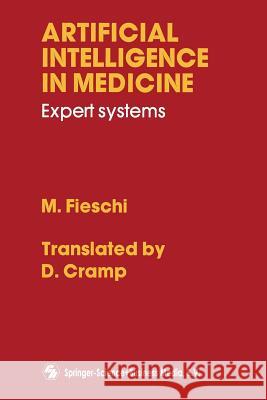Artificial Intelligence in Medicine: Expert Systems » książka
Artificial Intelligence in Medicine: Expert Systems
ISBN-13: 9780412330001 / Angielski / Miękka / 1990 / 166 str.
Expert systems constitute a research area which is currently expanding. This book is based largely on work undertaken for my doctoral thesis and attempts to set out in readily understood language the different methods of knowledge representation used in different systems. How- ever, since the field for applications is enormous and touches on many disciplines (engineering science, computing, geology, medicine etc.) only those systems with medical applications are presented. The second part of this book is devoted to detailed discussion of one expert system developed in this department: SPHINX. I wish to thank all those who have given me their support, their criticisms and suggestions: Dominique Fieschi, Michel Joubert, Genevieve Botti, Michel Roux, Jean-Louis Lauriere, as well as the CNRS which supported the ATP Expert Systems Group with an individual grant. Marius Fieschi Foreword This work deals with 'Expert Systems' in the realm of medicine. The phrase 'Expert System' describes an information system not only in terms of its content but also in terms of its application. As with all generic terms, it is condensed to the point where the meaning cannot be guessed from simply reading it. It concerns systems processing knowledge and behaviour in ways close to those of a human expert. In the field of medicine this expert would be the consultant or specialist to whom a family practitioner refers a 'case' which he is unable to diagnose. The study of expert systems is a branch of computer science called artificial intelligence.











